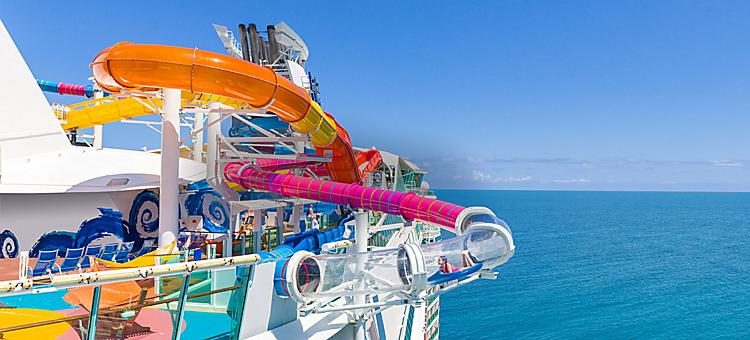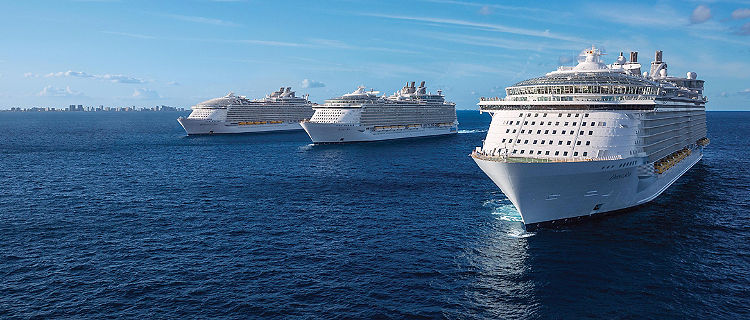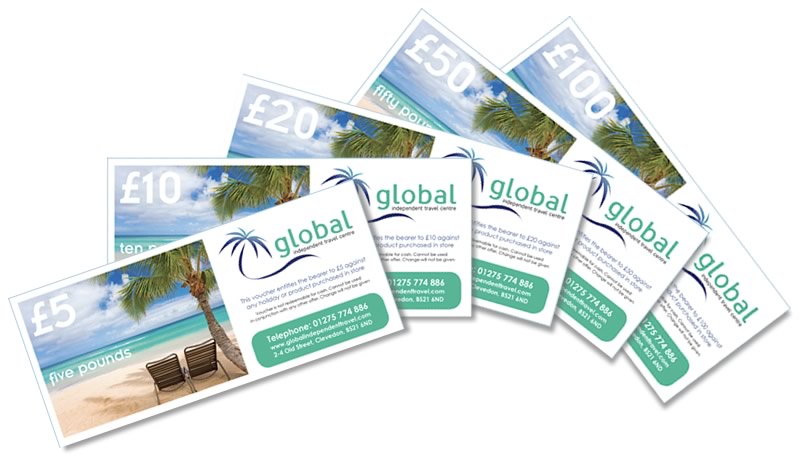
Royal Caribbean Cruises has revealed just under half of its customers have requested cash refunds for cancelled cruises, with its operations currently suspended through to June 11.
In a business update, Royal Caribbean revealed it was holding $2.4 billion in customer deposits at the end of March and said, as of April 30, “approximately 45% of guests have requested cash refunds”.
The cruise giant is offering clients with cancelled bookings credits for future cruises worth 125% of the price they paid in lieu of cash refunds.
Royal Caribbean reported it started the year “in a strong booked position and at higher prices” than the previous year, but said: “Booking volumes for the remainder of 2020 are meaningfully lower than the same time last year at prices that are down [in] low-single digits.”
However, the company described booking trends for 2021 and beyond as at “more typical levels”, reporting: “The booked position for 2021 is within historical ranges . . . with 2021 prices up [in] mid-single digits compared to 2020.”
Royal Caribbean confirmed it continues to take future bookings for later this year, 2021 and 2022 and to “receive new customer deposits and final payments on these”.
Richard Fain, Royal Caribbean chairman and chief executive, said: “Travel restrictions and stay-at-home orders have severely impacted our operations.
“We are taking decisive actions to prioritise the safety of our guests and crew while protecting our fleet and bolstering liquidity.”

He reported: “The company’s fleet is now either in port or at anchor and we have developed strict protocols to protect our crew still on board ships.”
Royal Caribbean said it was developing “a comprehensive and multi-faceted programme” to address the public health challenges posed by Covid-19, including “enhanced screening, upgraded cleaning and disinfection protocols and plans for social distancing”.
Chief financial officer Jason Liberty reported the company had also undertaken “significant cost-cutting, capital spend reductions and other cash conservation measures” and said: “We continue to evaluate all options available to us to further enhance liquidity.”
The company had $2.3 billion in cash and cash equivalents available to it at the end of April and increased its secured credit facility on May 4.
Royal Caribbean’s ships “are currently transitioning into various levels of layup, with several ships transitioning into a cold layup, further reducing operating expenses”, he said.
The company has laid-off about one-quarter of its 5,000 US onshore employees and identified $4.4 billion in savings on capital expenditure this year and next.
This will see the deferral and delay of planned ship deliveries.
However, these measures have still left Royal Caribbean with operating expenses of $150 million to $170 million a month and total monthly expenses, including interest and debt payments, of up to $275 million.

